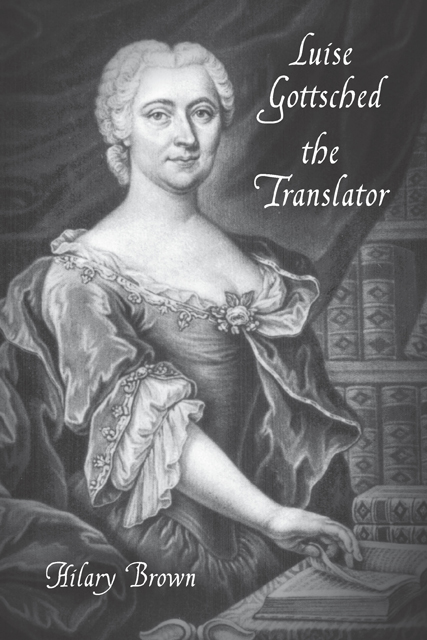Book contents
7 - Translation and “Original” Writing
Published online by Cambridge University Press: 14 February 2023
Summary
Let Us Now Return to the popular image of Gottsched as a frustrated writer. She is frequently presented in the secondary literature as a downtrodden assistant to her husband who would have seen her translation work as an onerous and dreary chore and would doubtless rather have been pursuing her own real ambitions as an author. Critics seem to assume that her translations are derivative and uncreative, and hence less interesting than her “proper” literary work. They have a tendency to focus on her so-called “original” plays: Die Pietisterey im Fischbein-Rocke, which is often treated as an original, or the comedies and tragedy she wrote for the Deutsche Schaubühne. However, it has been demonstrated in this book that Gottsched’s translations were far from being mere drudgery. In fact they should be regarded neither as inferior to nor separate from the rest of her oeuvre. We shall see in this chapter that the dividing line between “translation” and “original” is far less distinct than many critics have made out.
In the first place, recent work in translation studies regarding translation and writing should make us suspicious of drawing simple distinctions between these two activities. Since the “cultural turn” in translation studies in the 1990s, critics have laid more emphasis on the translator’s agency and stressed that translation is not merely mechanical but an activity that can have a major impact on the development of native literary traditions. Now critics are speaking of a “creative turn.” They draw parallels between translation and creative writing, applying to them both concepts such as subjectivity and inspiration, experiment and constraint. On the one hand they draw attention to the creative processes involved in the translation of texts. They point out that the translating of literature means working within constraints that demand great skill and inventiveness on the part of the translator. Indeed, they say, “the exercise of one’s creativity turns out to be directly proportional to the constraints to which one is subject; in other words, the more one is constrained, the more one is creative.” On the other hand they seek to demystify the writing of literature as an activity always characterized by freedom, spontaneity, and the expression of individuality.
- Type
- Chapter
- Information
- Luise Gottsched the Translator , pp. 184 - 200Publisher: Boydell & BrewerPrint publication year: 2012

